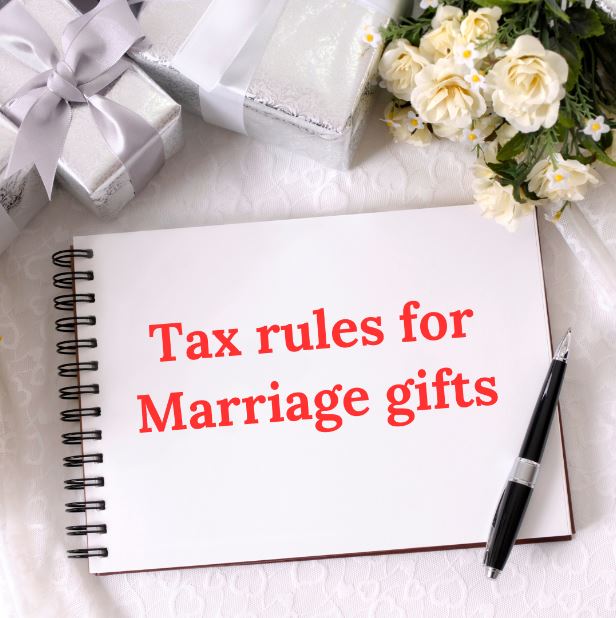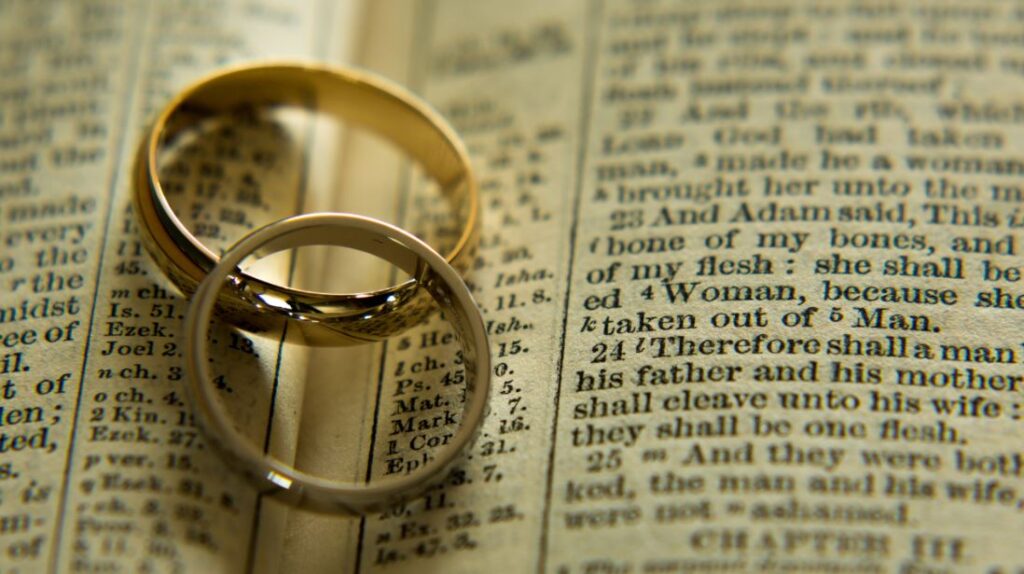
Every year, around 10 million weddings occur in India. Marriage is a cause for great joy and one of the most important financial goals for most Indian households. On this particular occasion, newlyweds and their families typically receive presents and gifts from their friends and relatives. However, such gifts may be subject to income tax regulations.
Monetary gifts received from Friends Vs Relatives:
As per the Indian tax laws, gifts received on any kind of occasion, including a wedding, are completely tax-free. However, on non-wedding occasions, presents received from friends are tax-free up to Rs. 50,000 only. So, for example, if your friend gives you a present of Rs. 1 lakh for your birthday or anniversary, the full amount is taxable as “income from other sources”. The key point to keep in mind here is that if the total value of monetary gifts received from friends throughout a year goes over Rs. 50,000, the whole value of gifts received during the year would be subject to tax.
It should be noted that marriage is the only occasion on which all presents or gifts received by the bride and groom from relatives and friends are completely tax-free. In Indian weddings, even close relatives of the couple get presents. In this case of the gifts received by the close relatives of the newly-wed couples however, if the gifts are worth more than Rs. 50,000, it would be deemed as income from other sources, and hence the recipients will be taxed at their income slab rate on the entire amount of the gift.
Gifts received during Marriage function:
Gifts received on the occasion of wedding include not only those offered on the day of the marriage, but also those given at pre-marital ceremonies or post-wedding festivities. Such an exemption is permissible since the tax code does not clearly identify wedding functions. As a result, gifts received at wedding ceremonies will be tax-exempt.

However, any presents received during betrothal ceremony would not be included as marriage gifts. That is because the betrothal ceremony is when the two families, i.e. the bride’s and groom’s families, announce their commitment to marriage before they come together to complete all of the marriage procedures. The gifts offered on betrothal or to say, any other occasion such as house warming, etc., must comply with the Rs. 50,000 rule. So, any higher-value gift will be subject to full taxation in the recipient’s hands. All gifts must be voluntary and not a prerequisite, since this would otherwise violate anti-dowry laws.
Clubbing provisions of gifts:
Let us first try to understand quickly what ‘Clubbing of income’ means. Clubbing income is a tax provision that adds another person’s (usually family member’s) income to one’s own. This is done to discourage people from evading tax payments by transferring income or assets within their families.
Any money received as a wedding gift is subject to clubbing requirements. As previously stated, any present received from relatives during the marriage will be tax-free in the recipient’s hands. However, any income generated by the investment of such gifts will be taxed either in the hands of the recipient or the transferor, depending on the relationship. This is explained in full in Section 64 of the Income Tax Act. We do not need to go into detail about such laws for the purposes of this blog article. We’ll simply look at an example to demonstrate this clubbing provision.
If any income arises from a gift made by the groom’s father or mother to their daughter-in-law, it will be combined with the income of the parents-in-law and taxed according to the in-law’s income tax bracket. Clubbing rules will remain in effect even if the asset changes form. For example, if a piece of jewellery donated to the daughter-in-law is sold after a set period, the capital gains from the sale will be combined with the income of the respective parents-in-law.
(It is also worth noting that, in the aforementioned example, if the in-laws provide the bride with a gift far before the marriage, such as at the time of betrothal, the ‘clubbing of income’ rule will not apply. However, the Rs. 50,000 rule will apply, and hence the gift received from in-laws will be perceived as a gift from friends, and therefore taxable in the hands of the bride, as she is not yet a member of the in-laws’ family.)
Record your high-value gifts:
It is crucial to keep track of all the high-value wedding gifts, whether they are monetary or immovable assets. If the taxman questions you, you should be prepared to provide adequate proof that these presents were actually received on the occasion of the marriage, with proper proof, such as the date of the money received in the account, which is nearby the date of the marriage, etc.

It is advisable to record high-value gifts as ‘income from other sources’ in the tax-exempt income section while filing for income tax. If the item is ultimately sold and there is a capital gain arising from that sale, this income tax filing will help to establish a suitable track of records. If there is no suitable paperwork and the tax agency does not find your explanation adequate, it may apply a tax rate that is far higher than your original income slab rate, as well as applicable interest charges for the delay in paying taxes.
How much the gift should be?
It is recommended that family or friends offer gifts that are suited to their financial situation or their relationship with the wedding couple. A particularly expensive gift may generate inquiries from the tax authorities about its source. In addition, presenting a particularly expensive gift to someone other than a relative might draw suspicion. Bogus presents, or gifts for transforming black money into white, can result in substantial tax consequences.
Let us just try to summarize the points that we have discussed above in a few bullet points:
- Gifts received from family relatives on any occasion are tax-free. However, non-relative gifts are exempt only if the value is less than Rs. 50,000. If the gift value from non-relatives exceeds Rs. 50,000, tax will be levied on the overall amount.
- Gifts received on the occasion of marriage from family and friends are tax-free. This exemption applies regardless of the value of the presents, and is applicable only to marriages.
- The income from a gift provided by the father-in-law or mother-in-law to their daughter-in-law is combined with the income of the respective parents-in-law and taxed based on the in-law’s income tax bracket. This is called Clubbing provision of the income tax rules. Future capital gains from those gifts are also subject to clubbing.
- Gifts may be offered during all the marriage rituals. The tax laws refer to the ‘occasion of marriage’ rather than the day of marriage. So, pre-wedding, post-wedding functions, all are considered as ‘occasion of marriage’. However, betrothal gifts are not included because they simply represent commitment between the families and hence are not considered as the ‘occasion of marriage’
Some of the pointers that we need to keep in mind while receiving gifts:
- Keep a track of all gifts, especially those of high value.
- In IT filings, declare exempt income under ‘income from other sources’. This will assist in maintaining a paper trail if an asset is sold in the future.
- If any misconduct or fraudulent money is received as a gift, which is commonly used for tax avoidance, tax penalties can be significantly greater than the slab rate.
- Gifts should not be demanded as a mandatory one for marriage, as this would violate dowry laws.





